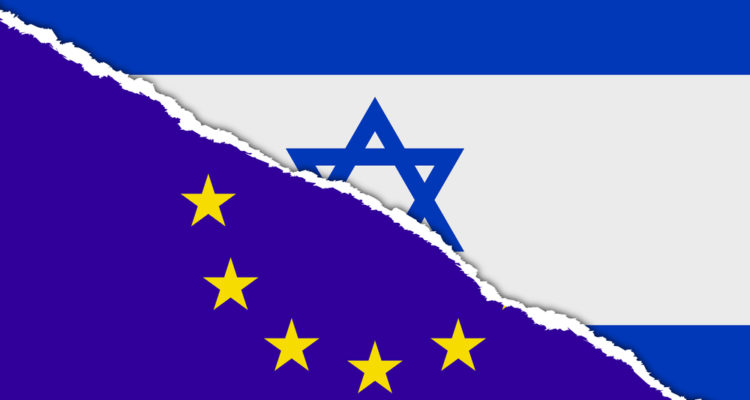The deep divisions within Europe present unique possibilities for Washington and Jerusalem.
By: Daniel Krygier, World Israel News
Counter-intuitively, liberal Western Europe is soft on Iran and Hamas and hostile toward democratic Israel, while the former Soviet bloc countries have become Israel’s biggest supporters.
Prime Minister Benjamin Netanyahu’s expected trip to Paris and Berlin will once again expose the ideological fault line that increasingly divides Europe on both European issues and policies concerning the Middle East. The move of the US embassy to Israel’s capital Jerusalem, the Gaza border tensions and the Iran nuclear deal have essentially divided the European continent into two camps.
France, Germany, Britain and the European Union (EU) leadership all opposed President Trump’s decision to relocate the American embassy from Tel Aviv to Jerusalem. Paris, Berlin, London and Brussels are also staunch defenders of the Iran nuclear deal and harsh critics of Israel defending itself against Hamas’ aggression on the Gaza border. Most Western European countries belong to this European ideological camp.
The other Europe consists of countries that are more sympathetic towards the US and Israel. This group includes Austria and former Eastern European states like Poland, Hungary, Czech Republic and Romania. Unlike France and Germany, these countries did not oppose the move of the American embassy to Jerusalem and several of them are in various stages of potentially following suit by moving their own embassies to Israel’s capital.
These countries defied the EU boycott of the US embassy opening in Jerusalem by sending their diplomats to the event. This led to the Abbas regime recalling its representatives from the several of the mentioned countries.
Countries such as the Czech Republic and Hungary have expressed far more understanding for Israel’s need to defend its sovereign borders against Hamas’s aggression.
The sharp division between the established democracies of Western Europe and the new democracies of Eastern Europe is also evident concerning the Iran deal. Unlike Paris, London and Berlin that support the Iran deal, to a large degree based on commercial interests, Eastern Europe is far more interested in maintaining its crucial commercial relations with the US.
The two different European camps also disagree on the future of the European continent. While much of Western Europe’s political elite supports a post-national and post-Christian ethos, most of eastern and central Europe still embrace their national identities and Christian heritage. The ongoing Muslim migrant crisis in Europe has only exacerbated these sharp ideological divisions within Europe.
In an ironic twist of history, established Western European democracies support a dangerously flawed deal with a despotic Iranian regime and side with the terrorist organizations Hamas and the PLO against the Middle East’s only democracy on issues such as Jerusalem and the Gaza border violence.
In contrast, Eastern European countries that not too long ago were ruled by a brutal totalitarian regime are the ones championing the democratic Israel.
What explains this ideological divergence?
Perhaps the Poles, the Czechs, the Hungarian, the Romanians and Slovaks, many of whom actively fought to extricate themselves from Soviet rule, are far more likely to value their newly-won freedoms than their Western European neighbors.
They are also far more aware of how precarious a free society is and how easy it is to fall into despotism.
As populations with first-hand knowledge of the dynamics of the despotic mind-set, East Europeans are far more skeptical when dealing with the likes of Iran or Hamas.
People who live in the Western democracies, in contrast, tend to take freedom for granted. Few have directly experienced totalitarianism, and they are less cognizant of their good fortune. They are also oblivious to the fact that most people in the world do not share their Western values and are, in fact, truly hostile toward these values.
It is unlikely that Prime Minister Benjamin Netanyahu will succeed in convincing Paris and Berlin to abandon their support of the Iran deal. However, the deep divisions within Europe present unique possibilities for Washington and Jerusalem to strengthen existing ties and establishing new relationships with European allies.





